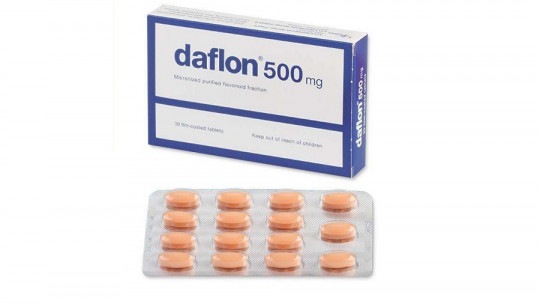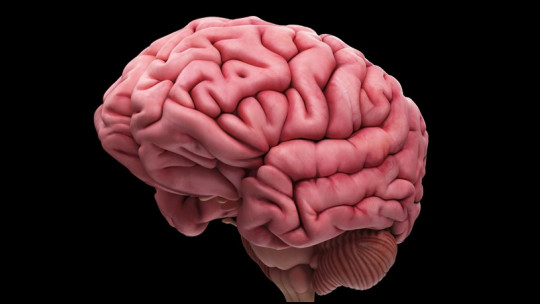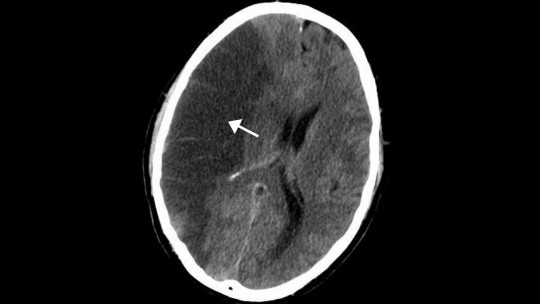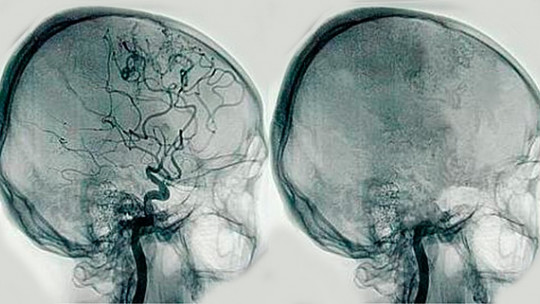There are a large number of drugs on the market which have different effects on our body and allow us to cure, improve, delay or alleviate the symptoms of a large number of diseases and problems of different kinds.
Among them we can find those dedicated to the treatment of problems of the vascular system, this system being of great importance for our survival by allowing blood (with oxygen and nutrients) to reach the different organs of the body. One of the drugs that are used and that have an effect on this system is the one known as Daflon which we are going to talk about throughout this article.
What is Daflon?
We call Daflon, sold as Daflon 500 mg or Daflon 1000 mg, a well-known drug that is used by a large number of people around the world, characterized by its effect on the vascular system and for the treatment of problems such as varicose veins and hemorrhoids of mainly venous origin.
It is a drug classified as a flavonoid, its components being a non-essential product or secondary metabolite produced by different vegetables. At the level of effect, Daflon is characterized by being a phlebotonic, that is, by stimulating venous tone. Specifically, its action occurs mainly at the venous level (in this sense it could be called venotonic), although it also has benefits in the protection of small blood vessels. It also improves, broadly speaking and due to the previous effects, blood circulation and prevents aging, stiffness and fragility
It is important to keep in mind that Daflon is provided as a medication for different conditions, but not as a sole treatment but as an aid in it: the consumption of Daflon alone will not solve any problem but it will be necessary to jointly apply other strategies such as controlling nutrition or performing exercises.
Active principles
Daflon is a brand name for a drug composed mainly of two elements that serve as active ingredients: diosmin and hesperidin the first of the substances being the most relevant and important when it comes to generating effects on health.
Thus, it is diosmin that generates the main benefits of the drug, these being the improvement of venous return, the protection of small vessels, the reduction of permeability and the increase in lymphatic drainage. Hesperidin, in addition to contributing to these effects, helps reduce the release of free radicals and possible bleeding. It acts as an antioxidant and in addition to its action at the circulatory level, it is also related to digestive function.
Main indications: what is it used for?
Daflon is a medication that, as we have said, has vasoprotective and vasotonic effects. These properties have been found to be useful in the treatment of various conditions related to vascularization Among them we find the following indications.
1. Varicose veins
Varicose veins are one of the conditions why many people, especially women, use Daflon. It is the product of the dilation of the veins, which become visible when blood accumulates in them due to the fact that the venous valves that push the blood back to the heart cannot close correctly.
2. Hemorrhoids
Hemorrhoids or piles are, similar to varicose veins, inflammations of the veins that supply the anus. They can be internal (in which case they are usually barely visible unless they bleed, with the exception of prolapsed hemorrhoids that protrude through the anus) or internal (located in the skin surrounding the anus).
They frequently cause discomfort that can range from light to severe, and can even generate such pain that it makes it difficult to sit It is common for them to appear as a result of straining when excreting feces or during pregnancy, although most of their causes are unknown.
3. Edema
Daflon is also used to treat fluid retention, allowing blood to circulate through a stronger and more toned vascular system and making fluid extravasation difficult especially if it has a cardiovascular origin.
4. Chronic venous insufficiency
One of the vascular disorders treated with Daflon is chronic venous insufficiency, which is known as the difficulty of the vascular system so that blood directed to the legs can return to the heart, associated with the weakness of the veins in this area. It frequently causes varicose veins.
5. Conditions linked to vascular risk: hypertension, diabetes and eye problems
Although it is not exactly a drug that is used to control blood pressure or other pathologies, it has been observed that its use, by strengthening and making the vascular system more flexible, can be of great help. in the prevention of spills or difficulties in various pathologies such as diabetes or eye problems, as well as in cases of high blood pressure.
Side effects and contraindications
Daflon is a drug considered safe by most people and its consumption is not usually associated with serious side effects. This does not mean that it cannot cause some discomfort or even have contraindications.
At the level of side effects, it must be taken into account that although it is not frequent, The use of Daflon can cause digestive disorders and problems such as nausea and the suffering of intestinal and stomach pain. Also colitis. Another possible side effect may appear in the form of skin rashes, as well as itching, and even in rare cases, Quincke’s edema has been observed (in which the facial tissue or orofacial organs become inflamed, making breathing and feeding difficult). Occasionally, headaches, vertigo and a feeling of discomfort have been detected.
Regarding contraindications, people who are allergic to this medication should not consume this drug. Taking it together with alcohol is contraindicated , since they can cause digestive problems. At the dietary level, the consumption of alkaline foods and the consumption of antacids are contraindicated. Children should not consume it either, or at least its consumption should be closely guided and regulated by the doctor. Its consumption should not last more than two or three weeks.
At the pregnancy level, a consultation with the doctor is required in order to assess possible risks, as well as breastfeeding. Although in general there is no evidence that it has negative effects, it is unknown if, for example, it can happen and affect the developing fetus.









